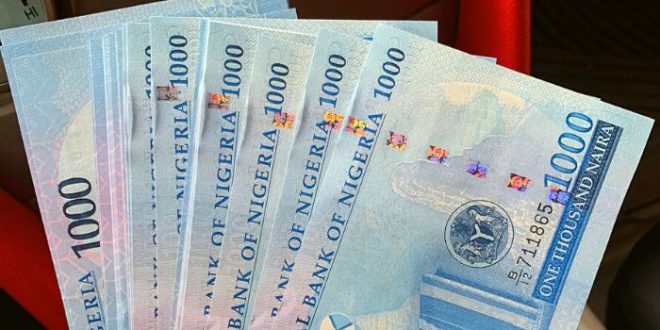The disclosures in the financial statements recently released by the Central Bank of Nigeria have cast doubt on the value of the country’s foreign exchange reserves, whose continued decline has weakened the CBN’s ability to defend the naira.
The FX reserves, which give the central bank the firepower to defend the naira, have come under the spotlight, with some economists saying the exact value of foreign currency-denominated assets on reserve is far less than the figure on CBN’s website.
The reserves stood at $33.88 billion as of August 10, down from $37.08 billion at the end of last year, according to data from the central bank.
Concerns over FX reserves come after the apex bank disclosed that it has large dollar deals with JP Morgan and Goldman Sachs in documents that also confirmed it broke limits on lending to the government.
“The revelations in the CBN report brought to the fore the true picture of the country’s external reserves. It is now beyond speculation that much of the reserves are encumbered by securities lending and derivatives contracts entered into by the CBN,” James Okweshine, a professor of economics at the University of Benin, said.
According to Okweshine, much as these contracts are legitimate, “the resulting obligations from them put to question the justification for entering into these contracts in the first place and whether adequate safeguards were put in place at the time of entering into these contracts.”
“A look at the fundamental data reveals the existence of large imbalances in Nigeria’s external accounts occasioned by a mix of structural shifts and policy missteps by the CBN as the bane of the present FX woes,” Agora Policy, an Abuja-based think tank, said in its latest note.
CBN taps securities lending
The CBN said it “pledged its holding on foreign securities in return for cash” in a lending agreement with Goldman Sachs and J.P. Morgan”.
“The cash received from Goldman Sachs is N0.23 trillion ($500 million), 2021: N0.22 trillion ($500 million), and JP Morgan N3.23 trillion ($7 billion), 2021: N3.05 trillion ($7 billion) is recognized in other foreign securities,” it said in its 2022 financial statements.
By implication, Uwaleke said the current liquid external reserves of about $33 billion do not reflect the true liquidity position of reserves as a significant proportion has been tied down by these contracts.
“Little wonder the CBN’s ability to intervene in the forex market has been hampered,” Okweshine said.
How securities lending works
Security lending is a financial instrument used by central banks around the world to inject liquidity into a market or increase their own returns.
According to Michael Saunders, head of agency lending for the Americas at BNP Paribas Securities Services, the major demand driver for securities lending is opportunistic lending or trading.
“That can be achieved by taking advantage of the cross-currency basis spread trade. Often, this is a measure of dollar shortage in the market,” Saunders said in a podcast.
He noted that security lending is a useful tool by central banks around the world to inject liquidity into the market; he however raised concerns about the importance of using it responsibly.
“If a central bank borrows too much money through security lending, it can lead to inflation and other problems,” he added.
Uncertainty over FX reserves worsens currency risks
Experts who spoke to BusinessDay said the disclosures in the financial statements have caused distrust about Nigeria’s current external reserves despite the CBN delivering a much-needed reform in floating the currency in June.
“Senior treasury officials from banks and portfolio managers are telling me that they don’t trust the numbers the CBN is stating as the official foreign reserves position,” Kelvin Emmanuel, CEO at Dairy Hills Ltd, said. “And they believe that this is contributing to the apex bank’s inability to clear FX backlogs up to date.”
The naira closed at 740.60 per dollar at the Investors’ & Exporters’ FX Window on Friday, data from FMDQ Group show.
It traded at 955/$ on the parallel market on Friday, according to AbokiFX, an online platform that provides daily updates and information on the parallel market.
The N955/$ rate represents a significant drop in the value of the Nigerian currency, which opened trading in the black market last Monday at N890 to a dollar.
“Two months on from the naira’s devaluation, the gap between Nigeria’s official and black market exchange rates is widening again. This suggests that the CBN is, once again, propping up the naira and adds to the mounting evidence that Nigerian policymakers are struggling to shrug off their interventionist tendencies,” analysts at London-based Capital Economics said in a note on Friday.
The gap meant that the demand for dollars continued to outstrip supply from the CBN, they said, adding that it “is all the more concerning, given that the recent rebound in oil prices to above $85pb should have supported the balance of payments position”.
Goke Adetoyinbo, an analyst at CSL Stockbrokers Limited, said the CBN has put Africa’s biggest economy in a very precarious state, and “the whole problem stems from its monetary policy and trying to achieve more than its capacity”.
“CBN has little or nothing to defend its reserves, the only way out is through effective fiscal policy and that will be through aggressive taxation,” Adetoyinbo said.
Mustapha Umaru, an equity research analyst at CSL Stockbrokers Limited, said the latest CBN report showed the future of Nigeria’s economy looks gloomy.
“There needs to be an aggressive drive to boost the revenue, but it’s not only through aggressive taxation but effective taxation,” Umaru said. “There is a need for fiscal policy to improve non-oil exports so that FX can come in.”
What to know about Nigeria’s external reserves
The country’s external reserves by virtue of statute are segregated into three distinctive portions, namely the CBN, the Federal Government of Nigeria (FGN) and the Federation reflecting ownership of the reserves.
The central bank receives FX inflows from crude oil sales and other sources of revenue on behalf of the government. Such proceeds are purchased by the bank and the naira equivalent is credited to the Federation account.
These proceeds are shared each month, in accordance with the constitution and the existing revenue-sharing formula. The monetised FX thus belongs to the CBN. It is from this portion of the reserves that the bank conducts its monetary policy and defends the value of the naira.
(Business Day)
 National Telescope national telescope newspaper
National Telescope national telescope newspaper



